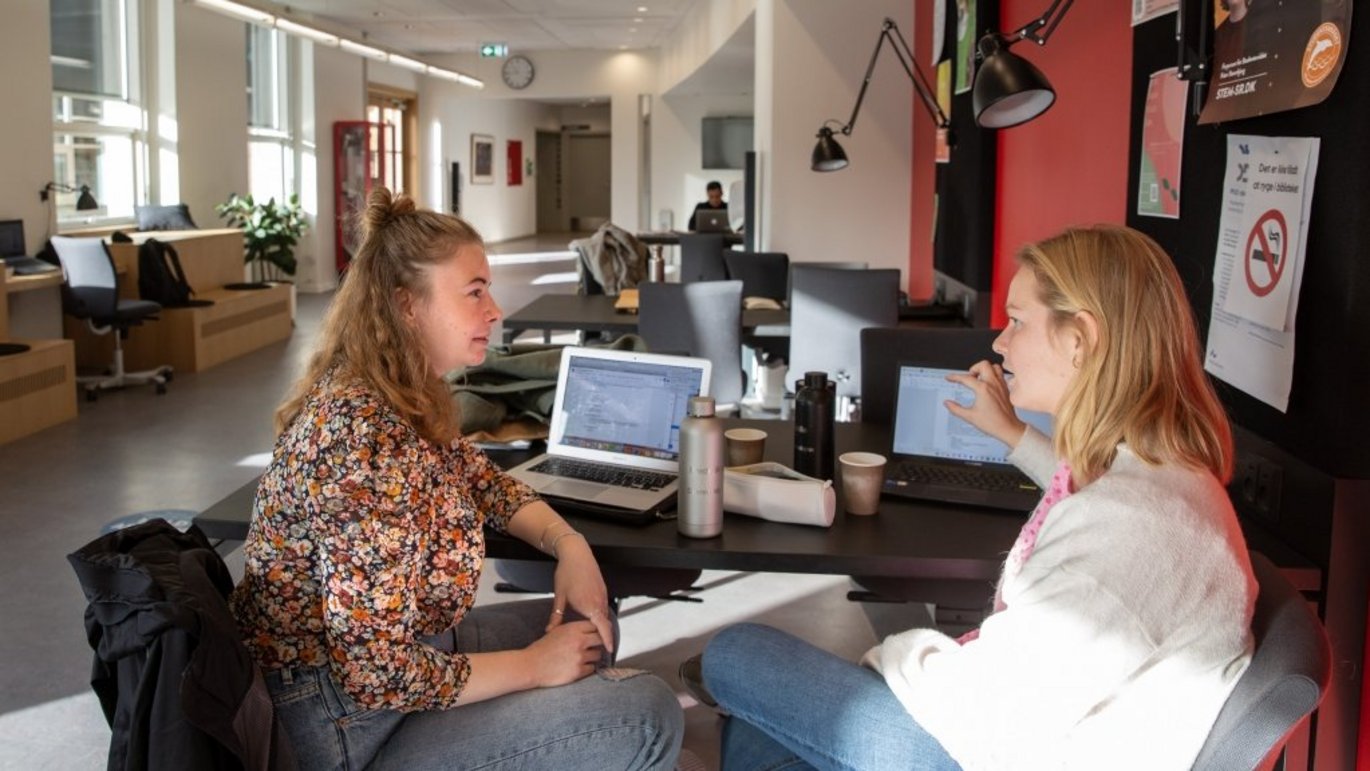Empowering students to take charge of their learning
Student agency empowers students to take an active and self-directed role in their learning. Furthermore, students participating in interaction-based pedagogies exhibit higher overall levels of agency compared to those exposed to more teacher-dominated teaching methodologies.


Student agency has emerged as an increasingly important concept in education, both as a goal to guide teachers and as a process for how students can influence and direct their own learning, operate actively, and make use of the resources available in educational settings.
“Student agency empowers students to make meaningful choices, set goals, and take ownership of their learning process, which can lead to increased motivation, engagement, and a deeper understanding of the subject matter,” associate professor at the CED Berit Lassesen explains.
Among other things, her research focuses on student learning and in recent years she has delved into the concept of student agency.
What does the research tell us?
The concept of student agency is rooted in constructivist and socio-cultural learning theories, emphasizing the importance of learners’ active participation in constructing knowledge:
“The concept aligns with the shift in education towards more student-centred and personalized learning approaches and emphasize students’ roles both individually and collaboratively in teaching and learning scenarios,” Berit Lassesen explains.
In a systematic review from 2022, Berit Lassesen and her colleague, postdoc Maria Hvid Stenalt from the Department of Culture and Learning at Aalborg University, found that student agency increases in learning environments where teachers establish interactive spaces for learning without exerting rigid control. Berit Lassesen elaborates:
“Among other things, the review accentuated that active learning environments, where students collectively solve problems and engage in reflective exercises and receive social support from their teachers, amplify the cultivation of student agency.”
Stimulating student agency in study groups
Initiating and supporting study group work is an efficient and feasible way for most teachers at AU to work with student agency in practice. Berit Lassesen points to seven ways in which study group work can stimulate student agency:
- Shared decision-making: When students cooperate in groups, they collectively set goals, strategies, and approaches to completing tasks. This empowers them to take ownership of their learning and exercise agency by actively contributing to the group's choices.
- Active engagement and responsibility: Working in groups requires students to collaborate with peers, share responsibilities, and work towards a common goal. This collaborative environment fosters teamwork skills, such as communication, negotiation, and problem-solving. This promotes agency as students will recognize their ability to influence outcomes and make meaningful contributions.
- Peer support and mentorship: In group work students can collaborate, help one another, and share knowledge and expertise. A supportive environment encourages students themselves to seek support, ask questions, and engage in problem-solving. By relying on peers for support, students develop agency by recognizing their capacity to seek help and learn from others.
- Negotiation and communication skills: Cooperation in groups requires effective communication and negotiation skills. Students learn to express their ideas, listen to others’ perspectives, and find common ground. Through this, they develop the ability to advocate for their ideas, navigate differences, and engage in constructive dialogue. These communication and negotiation skills contribute to students’ sense of agency as they learn to articulate their thoughts and opinions.
- Reflection and self-assessment: Cooperation in groups teach students to reflect on their own contributions, evaluate their strengths and areas for improvement, and set personal learning goals. This reflection and self-assessment help students develop a deeper understanding of their learning processes. By engaging in self-reflection, they take agency over their learning by identifying areas where they need to improve and make plans for growth.
- Cultivates a sense of responsibility and accountability: In group work, each member has a role and responsibilities within the group. This responsibility fosters a sense of accountability and ownership as students recognize that their contributions directly affect the group's outcomes. Students learn to manage their time, meet deadlines, and fulfil their commitments, thereby developing a stronger sense of agency and self-regulation.
- Stimulate self-efficacy: Cooperation allows students to receive feedback and validation from their peers. Positive interactions and recognition of their contributions can boost students’ confidence and self-efficacy. When students feel valued and acknowledged within the group, they are more likely to take agency and believe in their ability to succeed.
“In summary, student cooperation in groups stimulates student agency by promoting shared decision-making, active engagement, peer support, communication skills, reflection, and self-assessment. Through these collaborative experiences, students develop a greater sense of control of their learning and become active participants in their educational journey,” Berit Lassesen concludes.
Want to learn more?
You can read Berit Lassesen and Maria Hvid Stenalt’s systematic review on student agency here:
- Stenalt, M.H & Lassesen, B. (2022):Does student agency benefit student learning? A systematic review of higher education research, Assessment & Evaluation in Higher Education
And dive deeper into the subject here:
- Bandura, A. (2001). Social cognitive theory: An agentic perspective. Annual review of psychology, 52(1), 1-26.
- Bandura, A. (2006). Toward a psychology of human agency. Perspectives on psychological science, 1(2), 164-180.
- Biesta G. (2008), Learning lives: learning, identity and agency in the life course, Full Research Report, End of Award Report, RES-139-25-0111, ESRC, Swindon.
- Giddens, A. (1984). The constitution of society University of California Press, Berkeley
- Klemenčič, M. (2015). What is student agency? An ontological exploration in the context of research on student engagement. Student engagement in Europe: Society, higher education and student governance, 11, 29.
